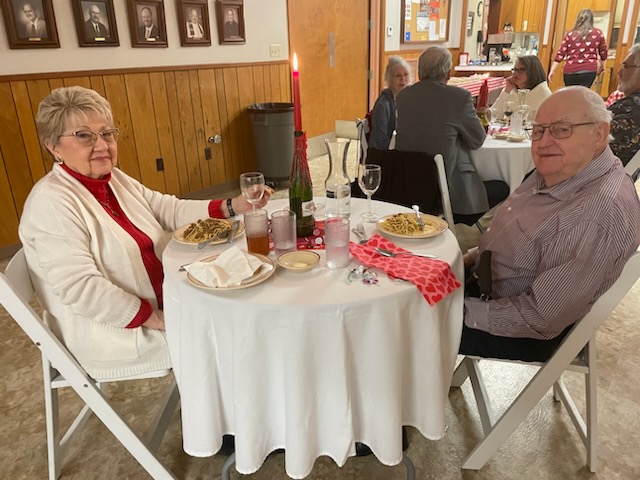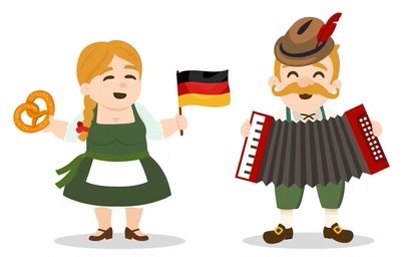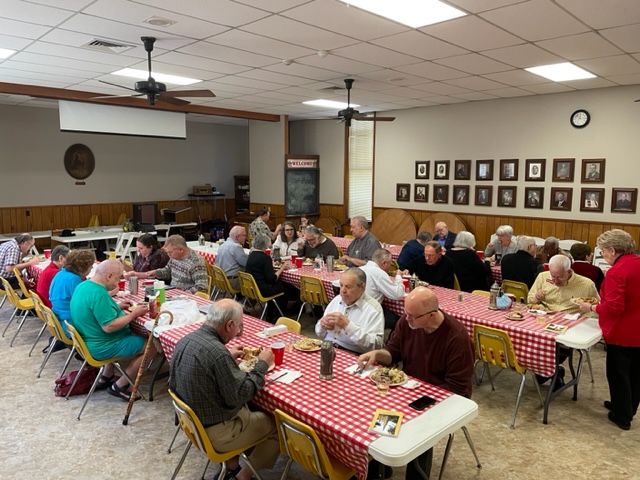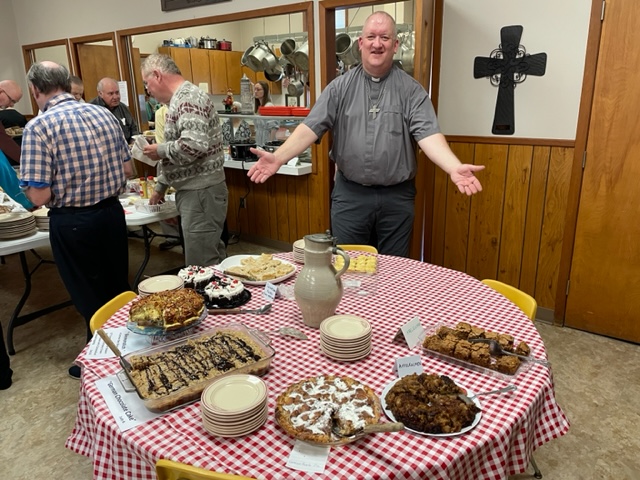TRANSFIGURATION OF OUR LORD, FEBRUARY 19, 2023
Text: 2 Peter 1:16–21
Theme: Made even more certain
Other Lessons: Exodus 24:8–18; Psalm 2:6–12; Matthew 17:1–9
A. In the Name of the Father…Amen.
B. The Epistle lesson serves as our sermon text for this morning.
C. Grace, mercy, and peace be yours from God our heavenly Father through
our Lord and Savior Jesus Christ. Amen.
D. Dear brothers and sisters in Christ, let us pray:
→ LSB 413:1 O Wondrous Type! O Vision Fair
O wondrous type! O vision fair
Of glory that the Church may share,
Which Christ upon the mountain shows,
Where brighter than the sun He glows!
Introduction
A. Wait till your father gets home!!
B. We all heard that statement a time or two when we younger, did we not?
C. Whether it was because we had gotten into a fight at school or the
report card came home and the grades were less than stellar, those words
were spoken by our mothers to us.
D. Although it would not be successful, the best thing for one to do after
hearing those words was to find a place to hide!
E. As we celebrate Transfiguration Sunday today, there was no hiding on
Jesus’ part at all.
F. Quite the remarkable scene, wouldn’t you say?
1. Three inner-core disciples along with the Master on a mountain top.
2. And then they see it.
3. Jesus is transfigured right before their very eyes.
4. His face, his clothing, his entire being radiates a light of holiness
not seen before by Peter and the others.
5. To add more to the mystery, all of a sudden Moses and Elijah show up.
6. These two giants of prophetic times, long since silenced by departure
from this world, they, too, are there.
7. The Law (represented by Moses) and the Prophets’ (represented by Elijah)
are talking with Jesus.
8. What an event!
9. What a story to tell the other nine apostles!
10. What an honor to witness such an unbelievable happening!
11. What was it all about?
12. What does it all mean?
13. Can they tell anyone?
14. Should they tell anyone?
15. If they did say anything, what would they say?
16. Especially since Jesus warns them not to speak to anyone of this event
until after the Son of Man is raised from the dead.
17. Yet when the time is right, what a testimony that The Word of God Is
Trustworthy!
I. The prophecies anticipated the transfiguration.
A. The Old Testament has images of this kind:
1. The face of Moses after receiving the Law from God (Exodus 24:15–18;
34:29).
15 Then Moses went up to the mountain, and the cloud covered the mountain.
16 The glory of the Lord rested on Mount Sinai, and the cloud covered it
for six days; and on the seventh day He called to Moses from the midst of
the cloud.
17 And to the eyes of the sons of Israel the appearance of the glory of the
Lord was like a consuming fire on the mountain top.
18 Moses entered the midst of the cloud as he went up to the mountain; and
Moses was on the mountain forty days and forty nights.
Exodus 34:29(NASB95)
It came about when Moses was coming down from Mount Sinai (and the two
tablets of the testimony were in Moses’ hand as he was coming down from the
mountain), that Moses did not know that the skin of his face shone because
of his speaking with Him.
2. The voice of God coming from the burning bush speaking to Moses on Sinai
(Exodus 3:14–15).
14 God said to Moses, “I AM WHO I AM”; and He said, “Thus you shall say to
the sons of Israel, ‘I AM has sent me to you.’ ”
15 God, furthermore, said to Moses, “Thus you shall say to the sons of
Israel, ‘The Lord, the God of your fathers, the God of Abraham, the God of
Isaac, and the God of Jacob, has sent me to you.’ This is My name forever,
and this is My memorial-name to all generations.
B. The Gospels are replete with powerful examples of Jesus’ divinity.
A. At Jesus’ Baptism, the Father’s voice spoke of his Son (Mark 1:11).
11 and a voice came out of the heavens: “You are My beloved Son, in You I
am well-pleased.”
B. Miracles demonstrated Jesus’ power over nature, as when he walked on
water and even allowed Peter to step out of the boat (Matthew 14:25).
Matthew 14:25 (NASB95)
And in the fourth watch of the night He came to them, walking on the sea.
C. The healing of Peter’s mother-in-law proves Jesus’ power over disease
(Matthew 8:14–15).
Matthew 8:14–15 (NASB95)
14 When Jesus came into Peter’s home, He saw his mother-in-law lying sick
in bed with a fever.
15 He touched her hand, and the fever left her; and she got up and waited
on Him.
II. Doubting old Adam is never convinced by the Word.
A. Peter fell to this temptation.
1. After hearing Jesus say he must be crucified and rise from death, Peter
rebuked him (Matthew 16:22).
Matthew 16:22 (NASB95)
Peter took Him aside and began to rebuke Him, saying, “God forbid it, Lord!
This shall never happen to You.”
2. Three times Peter denied Jesus (Luke 22:54–60).
54 Having arrested Him, they led Him away and brought Him to the house of
the high priest; but Peter was following at a distance.
55 After they had kindled a fire in the middle of the courtyard and had sat
down together, Peter was sitting among them.
56 And a servant-girl, seeing him as he sat in the firelight and looking
intently at him, said, “This man was with Him too.”
57 But he denied it, saying, “Woman, I do not know Him.”
58 A little later, another saw him and said, “You are one of them too!” But
Peter said, “Man, I am not!”
59 After about an hour had passed, another man began to insist, saying,
“Certainly this man also was with Him, for he is a Galilean too.”
60 But Peter said, “Man, I do not know what you are talking about.”
Immediately, while he was still speaking, a rooster crowed.
B. We, too, are prone to such temptations and failings.
1. Satan whispers to us:
a. “Is the testimony of men who lived so long ago trustworthy?”
2. The world bellows at us:
a. “Isn’t science more accurate than the Bible?
b. Doesn’t evolution make more sense than creation?”
3. The doctrine of some contends that Jesus isn’t enough.
a. You must add good works to please God.
4. Liberalism points the church to current trends and tells the church that
in order to keep up with society we must accept the new perspective on
whether it is has to do with sexuality, marriage, or gender.
a. Whether we like what society says or not, we must accept it; we have no
choice.
C. Transition:
1. All these temptations are powerful, and they’re demonic.
2. The old Adam in us is all too willing to listen and deny the scriptural
evidence of the eternal truth the Bible speaks.
3. We like hearing that we get credit for good works.
4. We enjoy sexual freedom.
5. We’re impressed with the philosophical thinkers who speak from “cleverly
devised myths” rather than the Word of the Prophets.
6. The Word of God tells us very plainly:
a. Repent and believe!
b. Repent and believe daily!
III. Now that the Son of Man has been raised from the dead, Peter can tell
of what he saw and what that means.
A. Peter does not lean on his own understanding when he speaks of Jesus and
his powerful return.
1. He leans on the Word of the Prophets, for they spoke not of their own
accord but from the very voice of God through them (verses 20–21).
20 But know this first of all, that no prophecy of Scripture is a matter of
one’s own interpretation,
21 for no prophecy was ever made by an act of human will, but men moved by
the Holy Spirit spoke from God.
2. Being an eyewitness to the transfiguration only served to confirm to
Peter what the Word of the Prophets had said (verses 16–19).
16 For we did not follow cleverly devised tales when we made known to you
the power and coming of our Lord Jesus Christ, but we were eyewitnesses of
His majesty.
17 For when He received honor and glory from God the Father, such an
utterance as this was made to Him by the Majestic Glory, “This is My
beloved Son with whom I am well-pleased”—
18 and we ourselves heard this utterance made from heaven when we were with
Him on the holy mountain.
19 And so we have the prophetic word made more sure, to which you do well
to pay attention as to a lamp shining in a dark place, until the day dawns
and the morning star arises in your hearts.
3. Peter doesn’t mention Moses or Elijah.
a. The transfiguration and its confirming of the Word is about Jesus and
his return with power to judge.
B. The mission of the Son has always been to carry out the will of the
Father.
1. The plan of salvation was not a “cleverly devised myth” of man but the
will of God from eternity.
2. The plan called for sacrificial blood to be spilled. This blood would
become a light to the world, glowing from the face of Jesus on the holy
mountain.
a. Jesus does not need science, culture, or philosophy to interpret his
Word.
b. This is the Father’s will, and Jesus carries it out with plain, simple
words culminating on Mount Calvary when he cries,
1. “Father, forgive them, for they know not what they do” (Luke 23:34).
3. The gleaming white robe draping Jesus’ body was exchanged for an earthly
shroud covered in his precious blood.
a. Payment was made in full.
C. The transfigured and resurrected Christ comes to us for salvation’s sake.
1. The power of Baptism is bound to the Son of God, who at his Baptism was
identified as “my Son whom I love, with whom I am well pleased.”
a. When we were baptized, we were joined to Jesus and received the benefits
Jesus earned.
1. So now in and through Jesus, we are God’s children in whom he is well
pleased.
b. The Father’s voice continues to call down blessings on us as we kneel
before his throne and confess our sins.
1. He pours into our ears the precious Word, “Your sins are forgiven.”
2. The Supper of our Lord is the meal where he bequeaths to us his body and
blood, which is a foretaste of the feast to come.
3. This is his Word, which is as sure and certain as it gets.
a. It is truth that comes from heaven to us.
4. It is trustworthy to lean on.
a. It is our hope and stay when Jesus returns in all his might on the day
of judgment.
b. He will remove the soil, gather the body and the soul, then carry us
over the threshold of eternal life and joyous bliss.
Conclusion
A. This Word of God we can believe.
1. In the Collect for the Word, we pray:
2. Blessed Lord, You have caused all Holy Scriptures to be written for our
learning.
3. Grant that we may so hear them, read, mark, learn, and inwardly digest
them that, by patience and comfort of Your holy Word, we may embrace and
ever hold fast the blessed hope of everlasting life; through Jesus Christ,
our Lord.
B. Are these words we believe in or are they just words?
1. When your emotions or circumstances do not line up with what is truth,
choose truth.
C. This we can trust.
1. For it is made more sure and certain with the life, death, and
resurrection of the Son of God, whom the Father loves and in whom he is
well pleased.
2. The Son of God has done it all for us and blesses us with the faith to
believe he is true.
3. This is certain.
4. This is sure.
5. This is the Word of God. Amen.
D. Please rise and let us pray:
→ LSB 413:5 O Wondrous Type! O Vision Fair
O Father, with the eternal Son
And Holy Spirit ever one,
We pray Thee, bring us by Thy grace
To see Thy glory face to face.
Text: Public domain










